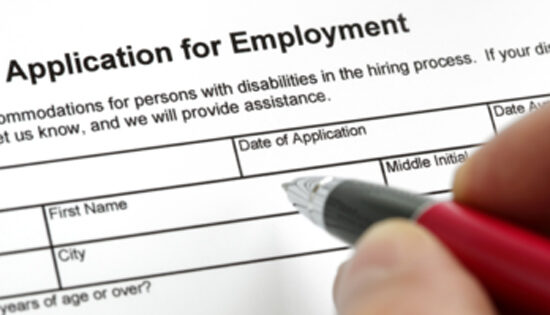IN OTHER NEWS – According to Google search trends, Georgia ranks in the top five states concerned about finances.
Release:
- From debt relief to budget help, study finds people in these 10 states are the most concerned about their finances based on Google search trends
- 7 out of the 10 top states worried about money are located in the South
- Employers have the power to use their resources to help out their employees with counseling services, financial literacy programs, workplace benefits, and aid with emergency funds
With inflation, rising living costs, and economic uncertainty dominating headlines, it’s no surprise that financial anxiety is gripping large parts of the U.S.. Google search data reveals significant trends in the states most worried about money, giving a glimpse into the regions where financial concerns are particularly heightened.
Online financial platform ConvertBankStatement conducted a study examining money-related Google queries, revealing the top 10 states most anxious about their financial situation. From concerns about paying bills to saving for the future, the data sheds light on where financial worries are the most prevalent.
Top 10 States Most Worried About Money
The study analyzed Google search trends for five key phrases related to financial concerns: ‘financial help,’ ‘how to budget,’ ‘debt help,’ ‘financial assistance,’ and ‘money help.’ Data was collected over a 12-month period beginning October 2023, with search terms weighted based on their nationwide popularity to calculate an overall Money Worry Score for each state.
Table: 10 States Most Worried About Finances, Ranked by Money Worry Score
Rank State Money Worry Score 1 Mississippi 86.30 2 Oklahoma 82.54 3 North Dakota 79.00 4 Georgia 78.41 5 North Carolina 77.66 6 Alabama 77.00 7 New Mexico 76.82 8 Arkansas 75.64 9 Texas 74.69 10 Louisiana 73.51
What the Data Suggests
The data reveals several interesting patterns in financial concerns across the United States. Seven out of the top 10 states most worried about money are located in the South, with Mississippi leading at a Money Worry Score of 86.30, followed by Oklahoma (82.54) and North Dakota (79.00).
Looking beyond the top 10, the data shows that Northeastern states generally express lower levels of financial anxiety. New Jersey (44.20), New York (45.79), and Massachusetts (46.11) ranked as the three states least worried about money. This stands in stark contrast to the Southern states’ dominance of the top positions.
The Midwest shows mixed results, with North Dakota ranking third highest (79.00), while Illinois (49.85) and Wisconsin (53.38) demonstrate significantly lower levels of financial concern. Western states generally fall in the middle range, with New Mexico (76.82) being the notable exception as the only Western state in the top 10.
The financial experts from ConvertBankStatement explain, “States like Mississippi and Oklahoma are facing heightened economic challenges due to a combination of lower average incomes and higher living costs. When wages don’t keep up with inflation, it leads to a growing sense of financial insecurity.”
If you are an employer and you run your business out of one of these ten states, it is imperative that you look into what you can do to help your employees in reducing their financial stress.
Experts’ Advice on Coping with Financial Stress
1. Seek Financial Counseling Services
The financial experts recommend individuals struggling with financial anxiety take advantage of counseling services. “Speaking with a financial advisor or counselor can help you map out a strategy to tackle debts, manage savings, and create a more secure financial plan,” according to a spokesperson for ConvertBankStatement. Many states and employers offer free or low-cost counseling services to assist those facing financial hardship.
2. Employers Should Invest in Financial Literacy Programs
In times of economic uncertainty, providing employees with access to financial literacy programs can make a significant difference. “Employers can empower their workforce by offering workshops on budgeting, saving for retirement, and understanding credit scores,” suggest the experts. “These initiatives give employees the tools they need to take control of their finances and reduce long-term stress.”
Feeling like you have more control over and knowledge about your finances can help reduce feelings of stress when it comes to money.
3. Offer Flexible Workplace Benefits
To support employees facing financial stress, ConvertBankStatement also emphasizes the importance of flexible workplace benefits. “Employers can offer resources like emergency savings accounts or advance pay options for employees who need access to funds between paychecks. This can alleviate some of the immediate pressures that fuel financial anxiety.”
4. Encourage Building an Emergency Fund
For those feeling anxious about money, they advise focusing on building an emergency fund. “Having at least three to six months of living expenses saved can provide a crucial safety net when unexpected costs arise,” the ConvertBankStatement spokesperson says. “Even small, regular contributions to an emergency fund can help reduce stress over time.”
Financial Concerns Rooted in Regional Economics
Economic disparities, such as lower wages and rising housing costs, are contributing to the higher levels of financial anxiety seen in these states. The experts explain, “In regions like the South and Midwest, where wages may lag behind the national average, families feel the effects of inflation more acutely. State policies on healthcare, housing, and education also play a major role in shaping financial security.”
The experts at Convert Bank Statements comment:
“As financial stress continues to weigh on many Americans, especially in states like Mississippi, Oklahoma, and North Dakota, solutions that combine education, workplace support, and accessible resources are needed more than ever. With an overwhelming majority of Google searches related to finances being about seeking help, it is up to employers and local governments to step in and help everyday workers.”









